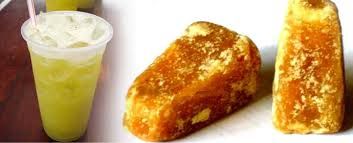Sugarcane Product: A Key Ingredient in Sustainable Alternatives
Sugarcane Product: A Key Ingredient in Sustainable Alternatives
Blog Article
Exploring Sugarcane Products: Versatile Benefits and utilizes
The expedition of sugarcane items reveals an exceptional range of applications that extend well beyond the familiar realm of sugar. As we analyze the multifaceted payments of sugarcane, one may question just how these diverse usages can reshape industries and way of lives in a quickly progressing world.
Introduction of Sugarcane
Although sugarcane is usually connected primarily with sugar manufacturing, it is a versatile crop with an abundant background and various applications. Grown in tropical and subtropical areas, sugarcane flourishes in cozy environments and well-drained soils, contributing dramatically to lots of economies worldwide. This perennial lawn, belonging to the genus Saccharum, can grow to elevations of up to 4 meters, showcasing its durable nature.
Past its key function in sugar removal, sugarcane serves as a crucial source for different spin-offs. The fibrous deposit, understood as bagasse, is used for creating bioenergy and as a raw material for manufacturing paper and biodegradable items. Furthermore, molasses, a byproduct of sugar refining, is abundant in nutrients and generally used in pet feed and fermentation procedures.
Sugarcane additionally plays a considerable function in traditional medicines and cultural techniques in a number of areas, illustrating its significance beyond commercial use (sugarcane product). Furthermore, with the enhancing focus on lasting agricultural techniques, sugarcane is being discovered for its capacity in biofuels and carbon capture, positioning it as a crucial gamer in the change in the direction of renewable resource sources. Thus, the convenience of sugarcane prolongs much past the boundaries of sugar production
Sugarcane in Food Products


Beyond sweeteners, sugarcane is the source of energy-rich items such as jaggery and panela, which are conventional unrefined sugars made use of in numerous cultures. These items not only sweeten foods however likewise convey nutritional benefits and special tastes.
Sugarcane juice, a revitalizing drink enjoyed in numerous tropical areas, showcases the plant's versatility. It is usually eaten fresh or fermented into alcohols like rum.
Furthermore, sugarcane fibers, referred to as bagasse, are occasionally utilized to produce food product packaging products, emphasizing the environmental benefits of sugarcane processing. In general, sugarcane's contribution to food is diverse, improving tastes, giving nutritional worth, and playing a considerable duty in culinary customs worldwide.
Industrial Applications of Sugarcane
In different markets, the versatility of sugarcane extends far past its culinary applications. Sugarcane serves as a vital basic material in the manufacturing of biofuels, particularly ethanol, which is significantly utilized as an eco-friendly power source. This biofuel is obtained with fermentation and distillation procedures, providing a lasting option to nonrenewable fuel sources and contributing to a decrease in greenhouse gas exhausts.

Moreover, the sugarcane industry has found applications in pharmaceuticals, where its components are made use of in the solution of various medicinal products. The natural substances drawn out from sugarcane exhibit antioxidant and antimicrobial properties, boosting the effectiveness of particular medicines.
Lastly, sugarcane is integral to the production of an array of chemicals, including glycerol and natural acids, which are essential for different industrial processes. These applications highlight sugarcane's substantial function in promoting industrial sustainability and development.
Ecological Benefits of Sugarcane
The complex applications of sugarcane not just boost commercial processes however likewise add dramatically to environmental sustainability. As a renewable energy, sugarcane cultivation explanation plays a crucial role in carbon sequestration, taking in significant quantities of co2 from the ambience. This process aids mitigate climate adjustment by minimizing greenhouse gas concentrations.
In addition, sugarcane by-products, such as bagasse and molasses, supply environment-friendly options to traditional products. Bagasse, the coarse residue after juice removal, can be utilized as a biomass fuel, reducing dependence on fossil fuels and advertising cleaner energy resources. Additionally, molasses can be changed right into bioethanol, further sustaining lasting energy campaigns.
Sugarcane farming also advertises biodiversity and dirt health and wellness. Lasting agricultural methods, such as intercropping and plant rotation, boost soil fertility and reduce erosion. Additionally, the plant's deep root system aids in water retention, therefore supporting regional communities and enhancing resilience against dry spell.
Health Advantages of Sugarcane
Rich in necessary nutrients and natural sugars, sugarcane uses countless wellness advantages that navigate to this website make it a valuable addition to a balanced diet plan. Its high fiber content help in digestion, promoting gut health and wellness and stopping constipation. Additionally, sugarcane gives antioxidants, which fight oxidative tension and may decrease the risk of chronic diseases.
Furthermore, sugarcane juice is known for its hydrating homes, making it an exceptional beverage choice, especially in warm environments. The all-natural sugars present in sugarcane offer a quick power increase, helpful for professional athletes and those engaged in physical activities. It also contains essential nutrients, such as vitamin C, calcium, potassium, and magnesium, which add to total wellness.
Studies recommend that sugarcane might help regulate blood sugar level levels, making it a preferable sugar for people with diabetes mellitus when eaten in moderation. Additionally, its anti-inflammatory residential properties can sustain liver wellness and aid in cleansing.
Final Thought
In final thought, sugarcane arises as a highly flexible plant with significant contributions to different fields. The click site by-products of sugarcane, such as bagasse and molasses, assist in green practices, while its health and wellness advantages boost overall wellness.
Although sugarcane is usually associated mainly with sugar production, it is a functional plant with an abundant history and countless applications.Past its primary role in sugar extraction, sugarcane serves as a crucial resource for numerous by-products. Primarily understood for creating sugar, sugarcane is changed right into granulated sugar, brownish sugar, and molasses, each offering unique cooking objectives.Rich in essential nutrients and natural sugars, sugarcane offers countless health and wellness benefits that make it a beneficial enhancement to a well balanced diet regimen. The all-natural sugars existing in sugarcane give a fast power boost, helpful for professional athletes and those engaged in physical activities.
Report this page